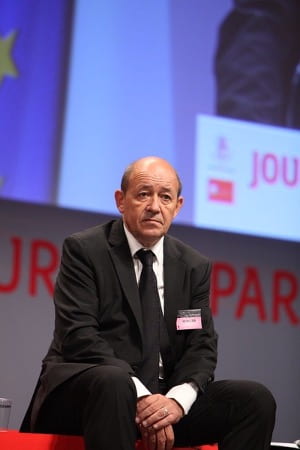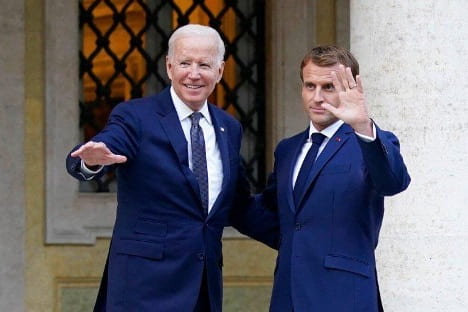By Jesse Tanson, MA International Affairs ’22
The AUKUS incident between France, the United States, and Australia occurred due to a contract breach between Australia and France. Australian authorities had contracted France to develop shortfin barracuda submarines to meet its maritime defense needs in 2016 for $38.6 billion. As the deal was delayed and costs increased, the Australian government decided to opt for American-built submarines because they have nuclear capabilities. The abandonment of the deal provoked the removal of the French ambassador to the United States, a first in the history of the Franco-American relationship. Ambassador Etienne returned to Paris for a brief period before returning to his post. The event prompted conversations about alliances and France’s role in the world.
France in the U.S.’ world?
The projection of power was key to the formation of modern France. As an empire, France saw its power expand throughout the world and the country was synonymous with influence.
Until WWII, France saw itself as a world power, influential militarily and culturally. However, its leadership in the world waned as the United States became the world superpower following WWII when the US helped the French fight the Germans, hurting Paris’ pride. Furthermore, the U.S. had obtained nuclear weapons and spread its culture globally, ousting France from the top position. To reclaim its identity as a top contender in a U.S.-dominated world, France developed its own nuclear arms program. In other words, Charles de Gaulle saw it necessary for France to arm itself with nuclear weapons to reassert its dominance in the new world order.
Similarlyfor President Macron, nuclear power is equal to French world leadership. Macron announced a nuclear buildup of 14 generators to reduce carbon emissions and reliance on foreign energy, namely from Russia. Now France also hopes to best the United States and China in the nuclear power race. If France can become Europe’s top nuclear power producer, it can position itself as a worthy adversary of the United States.
Paris still holds onto its former colonies as trade partners, but increased Chinese involvement in the region may drive away French business. The AUKUS deal represented another defeat to French power, prompting it to react strongly. Paris needed to show resolve in the face of its people, Europe, and the world.
A stab in the back?

French Minister of Foreign Affairs Yves Le Drian (Community Commons)
The immediate ending of the $38.6 billion deal shocked the world, not least of all the French. French Minister of Foreign Affairs Yves Le Drian called the dropping of France in the deal “a stab in the back.” Following a conversation with the Australian Prime Minister, President Macron alleged that he was lied to about the failed submarine deal. The U.S. actions attacked France’s falling self-image. The deal demonstrated to France that it would be a second-choice partner, behind the United States. As it struggled to reclaim its lost glory, France found its plans thwarted by U.S. enterprise. Furthermore, the failure of the deal demonstrates the American hegemony against which France has fought for several decades. In France’s view, the United States violated norms in pursuit of its interests, slighting its European allies in favor of its Anglophone partnerships. The submarines France intended to sell to Australia were non-nuclear, per agreements to half nuclear proliferation. From this perspective, France sees the United States as violating agreements established by democracies with shared values. Thus the AUKUS deal struck to the heart of France’s identity of a nuclear power with global trade ambitions.
A Simple Mistake?
The AUKUS deal represented a breach of trust for the French and larger European community, an opportunity to better arm itself for Australia, and another means to secure the indo-pacific for the United States. To resolve the issue, President Joe Biden met with President Emmanuel Macron. The two heads of state addressed the deal, with the American leader referring to the turn of events as “clumsy.” President Biden claimed that he was under the impression that France was aware of the switching of clients. The difference in perspective reveals differences in the larger identity narratives of the two countries. France’s concern was its image as a world power, which has dwindled in recent history. The deal, for France, would have returned lost prestige to the country. France falls behind the United States and Russia as the third-largest weapons exporter globally. The United States, possessing the title of the world’s greatest superpower, merely acted in line with its own identity; it sought to ensure security. The fact that France was caught in crossfires was a blunder, as President Biden explained.

US President Biden and French President Macron (AP Photo)
Reinforced Cooperation?
Though the AUKUS affair ended with the return of French Ambassador Etienne and the two sides found an agreement, what would this mean for France? France successfully defended itself against the United States and was successful in obtaining an admission of guilt from the American president.
For more on the topic by the author, please click here.
The opinions expressed in this blog are those of the author. They do not express the views of the Institute for Public Diplomacy and Global Communication or the George Washington University.


